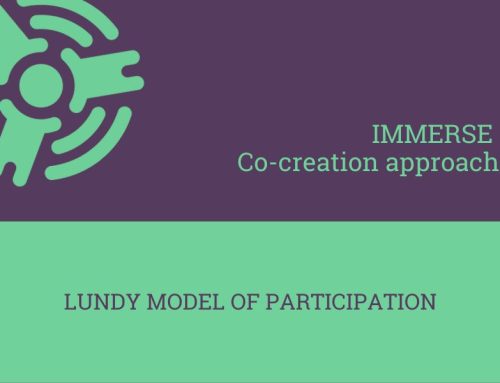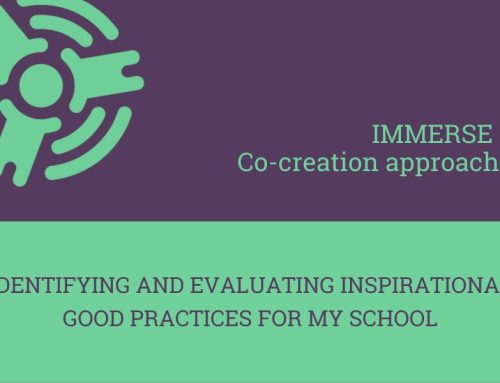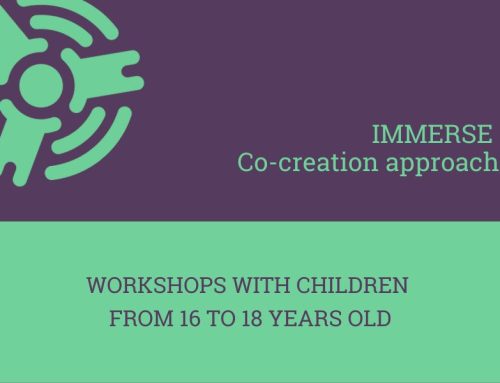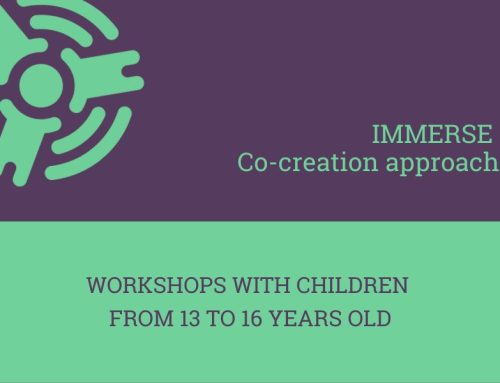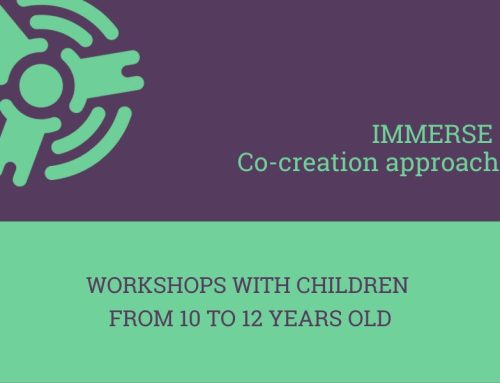One of the objectives of IMMERSE is to achieve meaningful participation in order to obtain an extensive and precise picture about the situation of refugee and migrant children in six countries. Since the project is involving a variety of different stakeholders, engagement and participation have to be adapted respectively.
Participatory assessments need to be age appropriate. This means adapting the methods, content and our expectations according to the age and developmental stage of the child. For instance, a workshop session with six-year olds will not directly produce a large volume of detailed textual information; it will still provide a picture of these children’s lives, their concerns and a sense of their well-being. It will give us an opportunity to engage and observe these children to cross-reference their views with that of other age groups.
Engaging and facilitating participation is possible in a wide variety of ways. Different formats and respective methods can be used for different occasion, objectives, and target audiences. The following list is meant to provide a short, if not complete overview over main formats.
| Interview |
|---|
| A research interview is a conversation between a researcher, who “coordinates the process of the conversation and asks questions” and an interviewer, who answers researcher’s questions. Interviews can be led from the researcher in a face-to-face meeting, over Internet or over the telephone. There interview can be structured, semi-structured or unstructured. |
| Seminar |
|---|
| A seminar is a meeting of a group of people with a teacher or expert for training, discussion, or study on a particular problem or subject. The seminar is a popular form of knowledge transfer. The seminar offers a deeper engagement with a subject than a lecture and is characterized by a small group and an increased interaction of the students. |
| Workshop |
|---|
| A workshop is usually a brief, educational program for a relatively small group of people. Workshops do focus techniques and skills in a particular field and is one of the best formats to increase participation and keep it intimate. This format works best for small, more focused audiences and increases flexibility: a part can be online and the other one in real life. |
| Focus group |
|---|
| The Spiral research centre of the University of Liège defines the focus group as “a qualitative method of social research that fosters the emergence of all opinions”. The method is not concerned with the search for consensus but instead allows for the collection of different perceptions, attitudes, beliefs and areas of resistance within the target groups.
To be precise, the technique targets a different number of participants and aims to stimulate an open discussion among interest representatives responding to the logic of creativity. Working with focus groups is best suited when targeting an analysis and synthesis of a specific subject discussion, which in turn exposes points of convergence and divergence between different stakeholders. The method makes it possible to gather the perceptions of the stakeholders concerned, without preconceived ideas or verification of a hypothesis. It can explain the attitudes concerning certain issues, causes, and remedies. Focus groups encourage the involvement of the community by giving them the floor. Ultimately, this method provides experts on a decision level the opportunity to develop policies and projects in line with the expectations expressed by the populations or groups concerned. The success of the focus group is based on four main factors. Recruitment of participants must take place according to homogeneous criteria. It goes without saying that this criterion must be assessed according to the issues studied. The aim here is to form groups where no factor will hinder the communication. The organisation of the group must respect the laws of group dynamics, particularly regarding the direction of the exchanges according to the themes of the grid. The presence of an experienced facilitator is thus indispensable. The development of the grid must meet the objectives of the study and be adapted to the target group. Finally, the synthesis of results should be systematic, with quantified data, i.e. inter-group comparison and percentage. |
| Congress |
|---|
| A congress refers to a gathering of people working in the same field. This event can last for one day – that’s usually referred to as a conference – or as a multi-day event. Congresses serve to exchange information about new insights, further and new developments, and to establish and cultivate contacts. The information transfer within the congress takes place via lectures and workshops. |
| World Café |
|---|
| World café is creative process that aims to facilitate constructive dialogue and the sharing of knowledge and ideas in order to create a network of exchanges and actions. This process reproduces the atmosphere of a café in which participants discuss a question or topic in small groups around tables. At regular intervals, participants change tables. A host stays at the table and summarizes the previous conversation to newcomers. Conversations in progress are then ‘fertilized’ with ideas from previous conversations with other participants. At the end of the process, the main ideas are summarized in a plenary assembly and the possibilities for follow-up are discussed. |
| Barcamp |
|---|
| The participants put together the program themselves. It is a conference where participants exchange their knowledge and experience in workshops, lectures and discussions. A barcamp is primarily about the participants learning from each other. |
| Open Space Technology |
|---|
| Open Space Technology (OST) is a format developed by the European project PRO-Ideal Plus. The biggest advantage of this method is the possibility to perform it with any number of people; i.e. even with a high number of contributors. Participants are asked to define a possible common working agenda and a range of tasks concerning a specific issue to be discussed. OST is best suited for complex issues involving conflict, complexity, and several different people and opinions and short decision-times. Participants present specific proposals and projects and then move to their preferred topics and groups. Each person who makes the proposal guarantees that they are able to write a report with the outcomes and main issues discussed by the group immediately after the discussion. |

